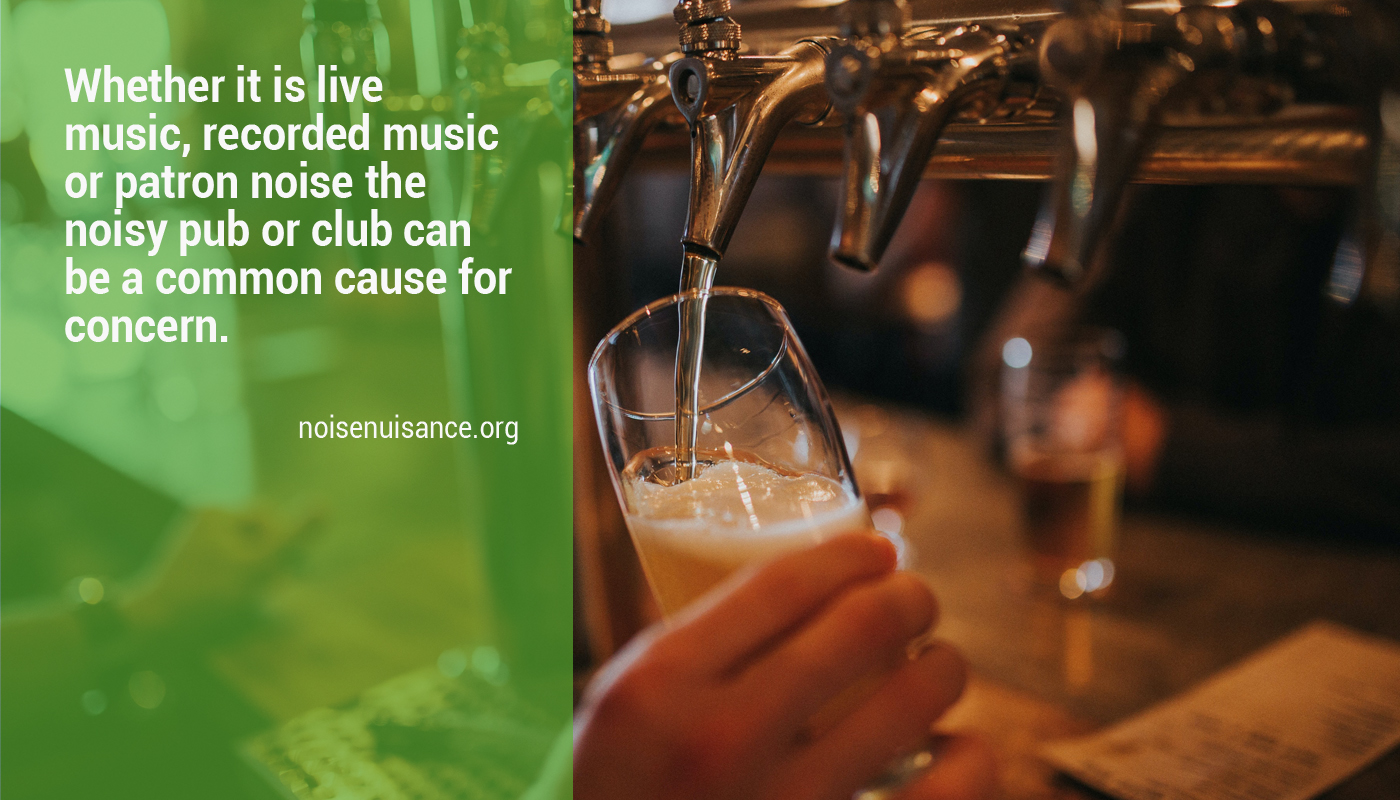How to deal with a Noisy Pub or Club
Whether it is live music, recorded music or patron noise the noisy pub or club can be a common cause for concern (particularly in mixed commercial/residential areas). In recent years enforcement officers and complainants have been blamed for the closure of some pubs and clubs (and for the reduction in live music). However, the significant financial pressures placed on publicans and decrease in popularity for night-time venues poses much more of a threat to the industry than an occasional noise complaint. Another issue raised in recent years has been the increase in the development of residential property in commercial areas near to potential sources of noise pollution. Land use planning and responsible development are key areas for the local authority and property developers; and both noise and air pollution need to be primary concerns.
If you are experiencing problems with a noisy operator nearby there are measures that can be taken to minimise disturbance. Powers exist to require nuisances to be abated (or restricted) and sound levels can be monitored. It is important that, when considering whether the person (or company) making the noise is being unreasonable, that a balance of interests is struck between the operator and his neighbours. Noisy trade after 11pm will more likely to be considered unreasonable, particularly if it interferes with sleep.
The principle mechanism used by enforcers to investigate and initiate changes is the abatement procedure for statutory nuisance.
Licensing Rules and Noise
Businesses or clubs covered by the Licensing Act 2003 (those offering alcohol and/or entertainment) are required to promote specific licensing objectives; one of which refers to the prevention of public nuisance. Generally speaking public nuisance is regarded as something that affects a whole community so if the noise affects just one household it may not be something that at be dealt with using licensing powers.
The licensing process involves the operator applying for permission to operate within certain parameters from the local Licensing Authority. Before doing so they outline how they intend to promote the prevention of public nuisance in the form of an operating schedule. This will detail their proposed activities and at what times they intend carrying them out. Interested parties (generally anyone likely to be affected by the proposal) may object (or “make a representation”). Responsible Authorities such as Environmental Health may also make a representation.
Where representations are made the licensing committee holds a hearing to determine the application. If representations are not made the application is granted as applied for.
Interested parties and Responsible Authorities may also “call for a review” of an existing premises licence if one of the objectives of the Licensing Act 2003 are not being met (for example, if there are significant problems due to a noisy pub or club). Again a hearing is held to determine the validity of the case put by the objector. The Committee have a wide range of powers to change, remove or revoke licensing permissions.
Decisions at all hearings should be made on the basis of evidence. Any frivolous, vexatious or repetitious representations (or reviews) should be rejected by the Licensing Authority. Sufficient evidence will be required to substantiate a review.
If you are considering calling for a review because of noise pollution you can contact us for advice before doing so.

